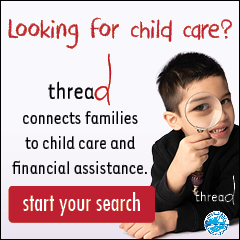
Beyond Blue
Recognizing and responding to teen depression
Most of us parents can still remember our teen years, navigating an emotional roller-coaster trapped between childhood and adulthood. As our kids grow up we see them face both success and failure in sports, schoolwork and their social life.
For some teens it gets increasingly difficult to pull the pieces together from the predictable failures that come with growing up – not making the volleyball team, a bad test score, or an argument with a friend. Ultimately, an inability to “bounce-back” can lead to increasing feelings of isolation and hopelessness.
So, how can a parent tell the difference between teen moodiness or doldrums, and something more serious?
What to look for
“Look for changes in behavior, as well as multiple behaviors,” explains Kate Burkhart, executive director with Alaska’s statewide Suicide Prevention Council. Being tuned into what’s normal for your teen is crucial to knowing whether a change is taking place. “If your teen is always forgetful, that’s ‘normal.’ But if your usually responsible teen is suddenly acting irresponsibly, that can be a sign.”
The symptoms of depression in teens can include sadness, irritability, feeling negative and worthless, anger, poor performance at school, feeling misunderstood and extremely sensitive, using drugs or alcohol, eating or sleeping too much, self-harm, loss of interest in normal activities, and avoidance of social interaction. The more pronounced these symptoms, and the longer they last, the more likely it is your teen is dealing with depression.
Other indicators
External factors also play a part in depression. Divorce, the end of an important relationship, death – any significant loss your teen experiences can be a risk factor. “Especially if it’s the first loss your teen is experiencing, it’s particularly hard for them,” says Burkhart.
Other external indicators include a family history of depression and proximity to suicide. “If a friend has committed suicide, I’m on alert,” says Jonathan Miller, a counselor with Turning Point Counseling Services in Fairbanks. “Sometimes teens see suicide as a way to honor their friend by joining them.”
Broaching the subject
If you’re concerned that your teen is depressed don’t avoid the issue. “If someone is suicidal, they want to know there’s another option – that someone cares,” says Miller. “If you avoid the topic, sometimes a teen will interpret that as you not caring.”
“There’s so much stigma attached to depression that in trying to talk about it, we sometimes reinforce those misperceptions,” Burkhart says. She recommends that parents educate themselves. Be prepared to answer questions, but also be willing to say, “I don’t know the answer, but we can get help from someone who does.”
Talk it out
Raising Resilient Kids
Children and adolescents must learn that their problems are not inescapable, but can be solved. It is important that they are made aware that, eventually, the negative feelings that they experience will end. They have to know and be taught that they can tolerate negative feelings.
Teach children to develop goals and aspirations, and about the ups and downs of achieving those goals. Developing a sense of humor, teaching substance abuse abstinence, and helping children develop a balance between independence and dependence on others, are crucial developmental steps in the achievement of psychological health, autonomy and trust in oneself.
An important part of developing hope and resiliency in children is to teach them that while life can be very challenging, it is important to develop more positive self-talk, and to remind one’s self that you are strong and can grow stronger and wiser as you handle life’s challenges.
We can teach children to view the world in such a way that they maximize their strengths and accomplishments and learn from, and therefore minimize, their weaknesses and setbacks.
Finally, it is important that children and adolescents participate in structured and well-supervised activities that provide them with a very real sense of achievement, purpose and accomplishment. For some children, this may be learning performing arts, such as music lessons, drawing skills, carving wood or ivory, sewing or dance. For other children, this may consist of sports-related activities in which exercise, cooperation with teammates and structured group activities and competition all promote stronger levels of resilience.
Excerpted from an article by David J. Sperbeck, PhD, professor of psychiatry and behavioral sciences, University of Washington School of Medicine, and director of psychological services at North Star Behavioral Health Hospital, Anchorage.
Begin your conversation by being specific. For example: “I’ve noticed you haven’t been sleeping much and that you aren’t going to basketball practice. You seem sad, and I wonder if there’s something going on that’s affecting your mood.”
Stay nonjudgmental. “Sometimes teens are afraid to talk to their parents because they think they’ll get in trouble,” says Miller, “so you have to let them know that in this case, you’re not mad; you’re concerned.”
Parents should be prepared to hear “I’m fine” or “I don’t want to talk about it.” It’s often difficult to continue to engage after those interactions, but gentle persistence is important so your teen knows he can talk to you when he’s ready.
Some kids still won’t open up with mom and dad. “Teachers, counselors, group leaders and other family members all have the capacity to be significant protective factors for children who feel isolated, lonely, hopeless and helpless to change their circumstances,” explains Dr. David J. Sperbeck, director of psychological services at North Star Behavioral Health Hospital. “Children seek out and benefit from responsible, mature and resilient adult role models who may be the only voice of reason.”
Seeing someone
Remember that depression is a health condition, and present it that way to your teen. “It’s like diabetes or asthma – something you get treatment for from a doctor,” explains Hilary Young, a clinician with Juneau Youth Services. “If you talk about it that way, it’s less likely your teen will hear, ‘There’s something wrong with you.’ ”
Finally, be prepared to talk about getting help and what that help will look like. Make sure that the child is participating in the conversation and decision-making as appropriate. Getting buy-in from your child is important because treatment only works if they’re committed and engaged.
If your child has a good relationship with the family general practitioner, you may start with a medical appointment at which you can get a referral for therapy. In this case, give the doctor a head’s up about the reason for the appointment so she can be prepared.
Some teens at risk of hurting themselves may require in-patient or residential treatment. In milder cases therapy may be a short-term experience or intermittent, developing a relationship with a counselor who can be there when needed. The important part is that everyone participates, since research has found that children of parents who take an active role in helping their teens connect with services, and participate in treatment, often have better outcomes.
Parents: The first line of defense
There is no vaccination for childhood depression, no guaranteed preventive measures. But, parents can positively affect their child’s ability to cope with the ups and downs of growing up. Establishing resiliency, or the ability to overcome adversity (see sidebar), begins at birth.
Parents are the first line of defense for preventing a downward emotional spiral. Dr. Sperbeck suggests that parents turn off the electronic devices and spend as much time as possible with their kids – in this case quantity is more important than quality. This ongoing investment of time allows parents to discuss, on a regular basis, how their kids are responding to the challenges they face as they grow up.









